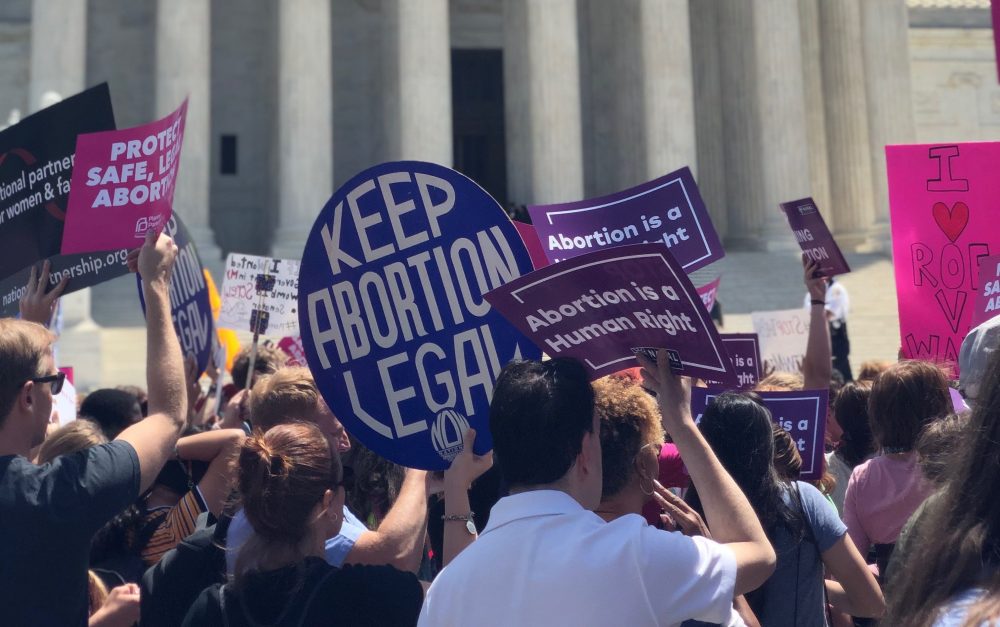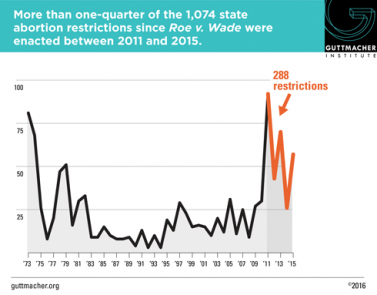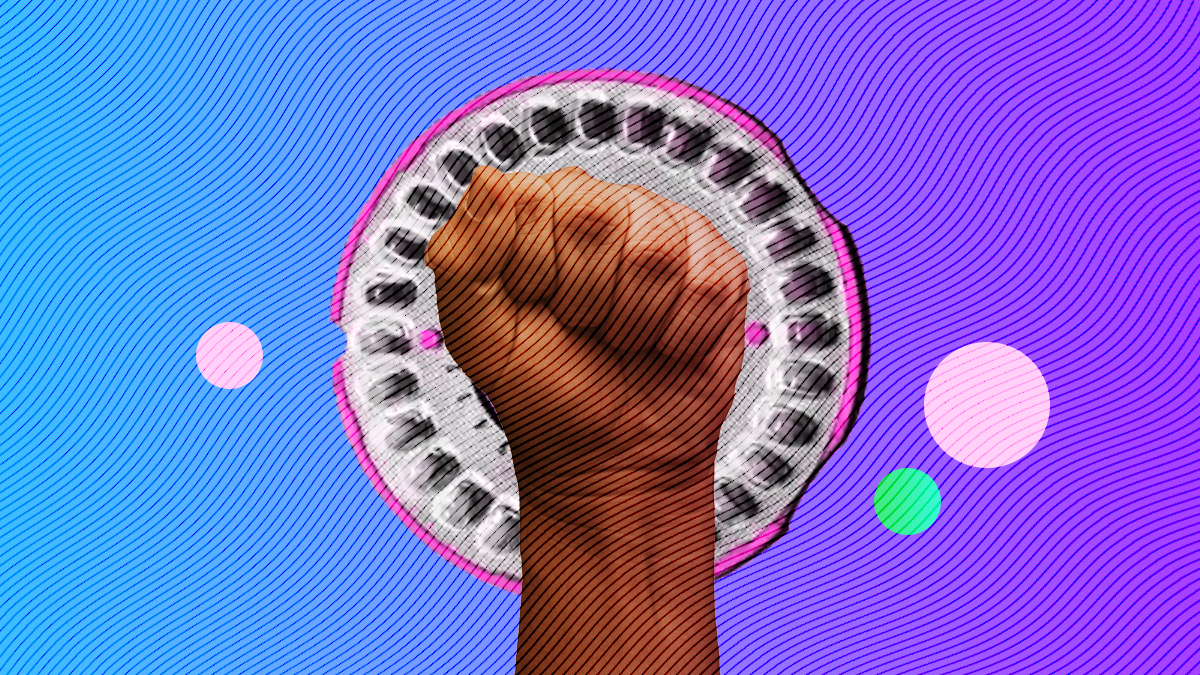Why Voter Suppression Is a Problem for Reproductive Rights and Justice

This year, we’ve seen a surge of extreme abortion bans being passed across the states. Georgia, Alabama, Missouri, Kentucky, Indiana, Ohio, and Mississippi have all passed blatantly unconstitutional laws that flat-out ban abortion. This is outrageous! Abortion access already suffers under restrictive policies and these bans only worsen the impact, especially for people of color, low income people, those living in rural areas, and the LGBTQ community. And even more alarming is the fact that these bans are wildly unpopular.
An overwhelming majority of Americans support protecting reproductive rights, including the right to access an abortion. 7 in 10 Americans do not want Roe v. Wade overturned and a majority of citizens say abortion should be legal in all or most cases. A recent poll in Georgia shows that people in living in the state feel similarly to national voters.[1] A ban should not even be up for discussion! These statistics underscore why voting rights are critical to reproductive justice.
Abortion restrictions – and voting restrictions – have surged since 2010
Beginning in 2010, we’ve seen a surge in the number of abortion restrictions passed in states. From 2011-2015, more than one-quarter of the abortion restrictions since Roe v. Wade were enacted.
Also during this period, the Supreme Court gutted the Voting Rights Act in the landmark civil rights case, Shelby County v. Holder. This made it easier for states to enact discriminatory voting restrictions, and harder for those who care about reproductive justice to have their voices heard.
Voter suppression silences the voices of large portions of the population
Voting is a critical tool in ensuring our state and national policies reflect our values. But when voter suppression occurs through voter ID laws, proof of citizenship requirements, and purging voter rolls, the voices of the majority are silenced.
Alabama, for example, has some of the most severe voting restrictions in the country, which helps explain how its legislature was able to pass a wildly unpopular total ban on abortion that would send doctors to jail for up to 99 years for providing abortion care. Here are some of the ways the state has made it harder for its citizens to vote:
- Voters are required to show a photo ID to vote, either at the polls or absentee. Even absentee voters have to provide a copy of an acceptable form of ID to return a ballot. According to the NAACP Legal Defense Fund, over 100,000 Alabamians do not have acceptable IDs. This law disproportionately affects voters who live in rural areas and low-income voters who can’t easily obtain an approved ID.
- Documentary proof of citizenship is required for voter registration. In most states, you can check a box on your voter registration affirming that you are a U.S. citizen. But Alabama has a law requiring you to bring your citizenship documents, such as a birth certificate or passport. This is an absurd, unnecessary barrier that has the potential to affect tens of thousands of eligible voters.
- There’s a trend of polling places being closed. Dozens of polling places across Alabama have closed in the past decade. Oftentimes, poll closures happen in low income neighborhoods or neighborhoods with a high number of people of color. This is cause for concern, since voters may have to drive longer distances to vote or show up at the wrong location on Election Day only to be turned away.
Alabama is not alone – since 2010, 25 states have imposed new voting restrictions. These tactics make it harder for people of color, low-income individuals, the LGBTQ community, young people, and immigrants to have their voices heard. Naturally, these are the same people who are adversely impacted by extreme abortion restrictions. So, when voting rights are restricted, abortion access and reproductive rights and justice are simultaneously undermined.
This isn’t just about abortion – it’s about equality and freedom
Reproductive justice requires that we center those who are most affected in the fight for bodily autonomy. In order to ensure all people can decide if and when to have children and have the right to parent the children they already have in safe, healthy environments, we have to listen to those who are most marginalized. We need to hear from the Black mother who is terrified of raising a child in a country where police brutality against Black people is rampant. We need to hear from the LGBTQ folks who are denied health care because of who they are. We need to hear from the young person with DACA status who isn’t allowed to purchase private health insurance under the Affordable Care Act. Having a meaningful right to vote is a critical piece in making sure our leaders prioritize reproductive justice.




